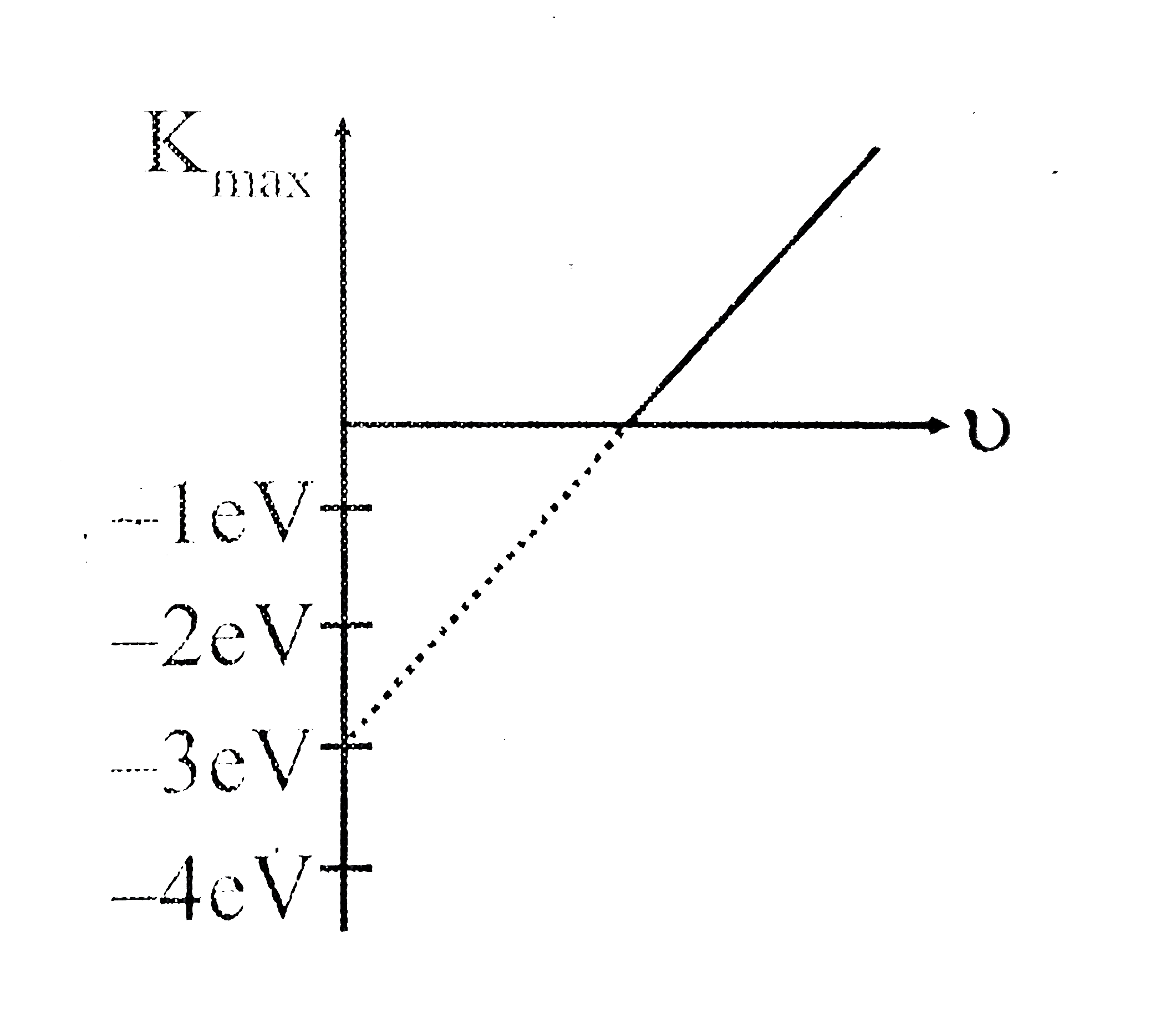Light of wavelength λ strikes a photoelectric surface and electrons are ejected with kinetic energy K. If K is to be increased to exactly twice its original value, the wavelength must be changed to λ' such that
λ'<λ/2
λ>λ/2
λ>λ'>λ/2
λ'=λ/2
The correct Answer is:C
hcλ'=2ε+ϕ
hcλ=ε+ϕ
dividing length, λ'λ=ε+ϕ2ε+ϕ or λ'λ<1, so λ'<λ
Also, λ'λ=12⎡⎢⎣ε+ϕε+ϕ2⎤⎥⎦
λ'λ>12 or λ<λ'<λ2
Topper's Solved these Questions
Similar Questions
If the kinetic energy of the particle is increased to 16 times its previous value , the percentage change in the de - Broglie wavelength of the particle is
View SolutionFor a photoelectric experiment graph between kinetic energy of fastest electron and frequency of light is plotted find threshold wavelength of metal.

View Solution
Knowledge Check
Light of wavelength λ strikes a photoelectric surface and electrons are ejected with kinetic energy K. If K is to be increased to exactly twice its original value, the wavelength must be changed to λ' such that
Aλ′<λ/2Bλ′>λ/2Cλ>λ′>λ/2Dλ′=λ/2Light of frequency v0 strikes on a metal surface and electrons are ejected with kinetic energy E . If the kinetic energy is to be increased to twice of the given value , the wavelength must be changed to λ' . which is equal to
Ahc(hv0−E)Bhc(hv0−2E)Chc(hv0+E)Dv20Light of wavelength λ strikes a photo - sensitive surface and electrons are ejected with kinetic energy is to be increased to 2E , the wavelength must be changed to λ' where
Aλ'=λ2Bλ'=2λCλ2<λ'<λDλ'>λ
When photons of wavelength λ1=2920Å strike the surface of metal A, the ejected photoelectron have maximum kinetic energy of k1eV and the smallest de-Broglie wavelength of λ. When photons of wavelength λ2=2640Å strike the surface of metal B the ejected photoelectrons have kinetic energy ranging from zero to k2=(k1–1.5)eV. The smallest de-Broglie wavelength of electrons emitted from metal B is 2λ. Find
(a) Work functions of metal A and B.
(b) k1
Take hc=12410eVÅ
View SolutionThe kinetic energy of an electron is E when the incident wavelength is λ To increase ti KE of the electron to 2E, the incident wavelength must be
View SolutionMonochromatic light of wavelength λ strikes a metal surface with intensity 'a' emitting 'b' electrons per second with 'c' as the maximum kinetic energy of electrons .Which of the following options will happen if 'a' is halved without changing wavelength and area of exposure?
View SolutionA monochromatic light of wavelength λ is incident ofn plane reflecting surface. After reflection, its wavelength will be
View SolutionIf light of wavelength λ1 is allowed to fall on a metal , then kinetic energy of photoelectrons emitted is E1. If wavelength of light changes to λ2 then kinetic energy of electrons changes to E2. Then work function of the metal is
View Solution
